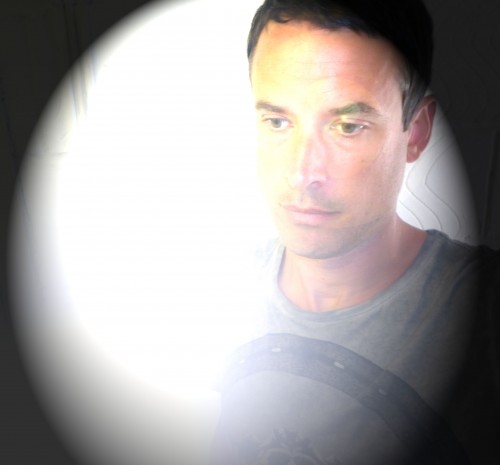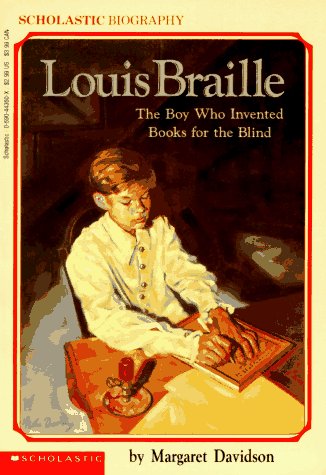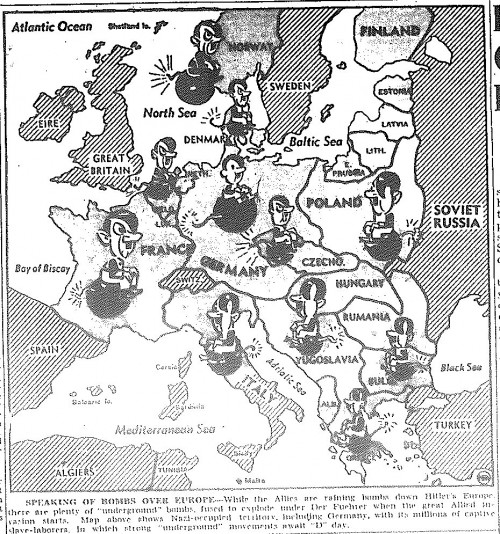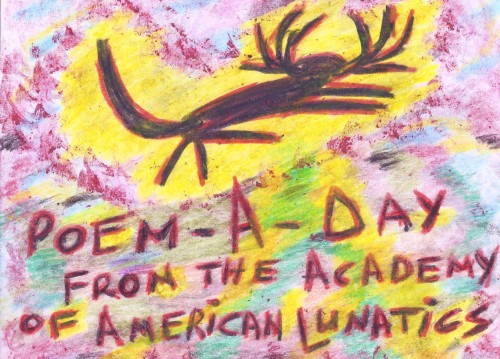Interview With Sergio de la Pava
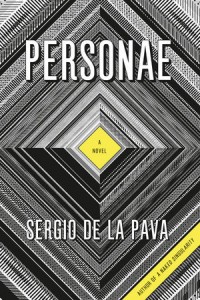 When I first tried to review Personae, I did a bad job, in that I couldn’t do anything but say complicatedly positive things about it. I kept asking myself, what results from praise heaped onto the author, in conversation or in the internets? Does this put food in anyone’s mouth? Does it save a human life? Does it even make a life incrementally better? Certainly not mine. In turn, I find myself asking, what is the goal of a review? To just ‘manically implore’ people to read the book? To provide the critical nuance that distances and individualizes my reading from that of others? To just geek out for a long time and ‘raise awareness’ of an author who my tiny mind thinks merits attention? I hope not any of the above, but I’m left without a good answer. All I want is to point at some facts about my affinity for Sergio de la Pava’s first two novels.
When I first tried to review Personae, I did a bad job, in that I couldn’t do anything but say complicatedly positive things about it. I kept asking myself, what results from praise heaped onto the author, in conversation or in the internets? Does this put food in anyone’s mouth? Does it save a human life? Does it even make a life incrementally better? Certainly not mine. In turn, I find myself asking, what is the goal of a review? To just ‘manically implore’ people to read the book? To provide the critical nuance that distances and individualizes my reading from that of others? To just geek out for a long time and ‘raise awareness’ of an author who my tiny mind thinks merits attention? I hope not any of the above, but I’m left without a good answer. All I want is to point at some facts about my affinity for Sergio de la Pava’s first two novels.
I think his first two books can be presented together despite their glaring differences in tone, form, and narrative approach, and that presenting them together makes them more than the sum of their parts. Much like Kierkegaard’s Either/Or, where a pair of volumes give both sides of the same moral problematic two faces of the common currency of life in our epoch. Towards the end of A Naked Singularity, an exchange is punctuated by a memo from a jail is perhaps the most infuriating and heartrending moment in the book, and betrays a deeper interest in form. The text of the letter has been copied, re-used, and had names of inmates impersonally inserted into it’s sentences on countless occasions, leaving them incarcerated even after their deaths, in the forms which serve as the only record of their existence.
Seeing the final form-letter, without even reading the words there, opened a valve inside me – I cried the entire day and wasn’t even finished with the book. Some summer campers observed me as a curiosity, weeping and furiously turning pages. Though I would go on to the end of the book, everything else seemed to swirl around that exasperating moment of intrusion. What I can say about Personae is that it is indeed a novel, but comprised of stories, plays, allegories, and translations, and with a plot that hovers above the text itself. Together they exhibit some of the superstructure of an epochal conflict between positivist and skeptical thought, one that has gone on much longer than the war on drugs. Since I am not in a position to review it, I decided to ask Sergio for an interview, which he granted.
Read the interview below:
***
CJ Morello: Hi there. So i heard the PEN Talking Transitions panel the other night where writers and other folks were given the chance to give recommendations to the incoming administration of NYC about how to ensure that NYC remains at the center of the scene of literary production. Your response was distinctly out of keeping with other answers, and you addressed the problem of incarceration. Would you like to elaborate on that a little bit?
Sergio de la Pava: Look, I like art, I like poetry, I love the novel, I love literature,I wouldn’t have devoted a substantial portion of my life to creating novels if I didn’t, but in that context, if I am nominally, allegedly addressing an incoming administration, that is a political situation. That is not an appropriate time for me to ignore what is the plight of indigent and marginalized members of New york City. I don’t think I was talking out of score in the sense that I warned them, look, if you’re going to invite me to this thing, I know that the subject of the evening is supposed to be encouraging the artistic prominence of New York City or whatever, that’s not what I’m going to address in any way. I’m going to address specifically what I made reference to, that crime has declined significantly in this city and really throughout the entire country, and I mean serious crime, burglary, robbery, has gone down drastically in this city and in many other places. Somehow contemporaneous with that fact, arrests rose 20% during the Bloomberg administration. So the idea was to hopefully begin a dialogue, though in that limited context there was no way to address such a complex issue, other than to bring up that anomaly in the hopes that you might cause some people to wonder how exactly we can justify such an inapposite result.
CJ: I hope some people did. There are some crimes we do want to see curtailed and prosecuted, especially violent crimes with deadly weapons. I grew up in Chicago, and there we have more problems than we can reliably handle, especially on the south side. So how do you explain that?
SP: Well I think with the Chicago situation you’re probably not even seeing decrease in crime, you’re seeing the result of decades of the evisceration of these communities through these draconian laws and the selective enforcement of drug laws. So what you’re seeing in Chicago, I’m not a sociologist, I’m not a criminologist, but what you’re seeing is the result of decades of neglect and even worse, active brutalization of these communities. It doesn’t take a genius to figure out that if you’re incarcerating an incredibly high percentage of people who look a certain way and live in certain neighborhoods, the effects on those neighborhoods are going to be stark. That’s not what were seeing in New York City, we’re seeing a massive decline in things like homicides, and gun-related offenses. So what we are seeing in New york City is certainly different than Chicago, in that what we have going on is the redefinition of the very concept of crime. So the attitude that policing has taken in this city has been to keep arresting as many people as and bring down the barrier to what constitutes a crime. The problem with that is, no matter what ultimately happens with the case, it turns out it’s a really bad thing to be arrested. It is really bad for your ‘career’ lets call it, it’s really bad for your status in society. Even if you never spend more than a day in jail before your release, it’s a really bad thing to end up with a criminal record. That’s pretty clear-cut. And there’s been a movement recently to essentially ban the asking of that question when you’re applying for jobs and things like that. The bottom line is once you get tagged with a criminal record in our society, it’s an uphill battle. And if you have a criminal record and you happen to be a minority, the research shows, there’s basically two strikes against you and it’s going to be difficult to overcome. So Chicago and New York seem to be on two different sides of the coin. What you are seeing in Chicago is basically a consequence of what you have happening in new york.
CJ: So we’re ahead of the curve.
SP: Unfortunately.
CJ: To cap off the violence section of the interview, you’ve said you’re a fan of boxing but also that UFC is something you enjoy less. I never really watched many fights growing up but recently I was introduced to UFC through some friends in California. So what do you think the salient differences are in the two sports and where does your boxing allegiance come from?
SP: It seems to me that the average UFC fight ends much faster than the average boxing match. I think that the fights have a maximum of? Three or four? The championships go five. And the average boxing match can go on for twelve… I mean when you say I’m a huge fan of boxing, I’m very much intrigued by it, I have an ambivalent view towards boxing as well. In that I don’t like to see people get hurt, and that can become a substantial part of boxing. It certainly seems to be a substantial part of UFC. It could just be the prejudices of what you grew up watching, I grew up watching boxing, there was no such thing as UFC. I trained in martial arts before it was called UFC, when you picked an actual martial art. I understand that there can be beauty in UFC too, I guess what I like about boxing is the ebb and flow, and the prolonged dance between two athletes that will eventually tell me something about those two individuals. It seems to be harder to find in UFC, but I have many people who tell me I’m crazy, that UFC is far better. I agree that from a spectacle standpoint, UFC seems like it’s more likely to yield the kind of spectacular visuals that you might only see in boxing once every ten fights. So you may see a higher instance of those spectacular visuals, but thats not what I come to boxing for, I come to boxing to see the struggle of two wills, and though I recognize that is part of UFC too, the brevity of it, the sheer violence of it, for me makes me difficult to enjoy.
CJ: You said in another interview that we want the novel to be a highlight reel, not every play. The distillation or condensation of the elements that are important.
SP: So I think that context, the question was asking about what responsibility a novel has to ape life. And I think it has very little responsibilities to that. Take dialogue. If I tried to create dialogue that replicated the way people spoke, it would be intensely boring, a lot of um, it would be a lot of how’s the weather. Right off the bat a certain amount of the heightening of life is going to be necessary in something like A Naked Singularity. So the question becomes why you’re doing that and what effects it is you’re seeking to create. So I don’t take it as criticism when people tell me for example “The way people talk in your books isn’t the way they talk in real life.” So it’s like, do you find the way people talk in real life to be so enthralling? Well then you don’t need to pick up a novel. You have people taking to you all the time in real life.
[pause]
SP: In other words when I sit down to write a novel, mimicing life perfectly, well it is not a documentary. And we know even a documentary really doesn’t do that. And whatever a novel is, and I don’t have the firmest grasp on what it is I’m trying to do, I think really low on the list of those things is replicating quotidian existence. And the flip part is, whenever I try to make a definitive statement related to this thing called the novel, I always find myself contradicting myself. And the truth of it is, there are parts in ANS that deal with the criminal justice system that really do attempt that, that strip away the artifice and the heightening, that really do give a view, a pretty accurate account of what it’s like to unmediatedly come into contact with a trial. But that’s about ten percent of it at most.
January 6th, 2014 / 12:00 pm
A Few Questions for Edward Mullany
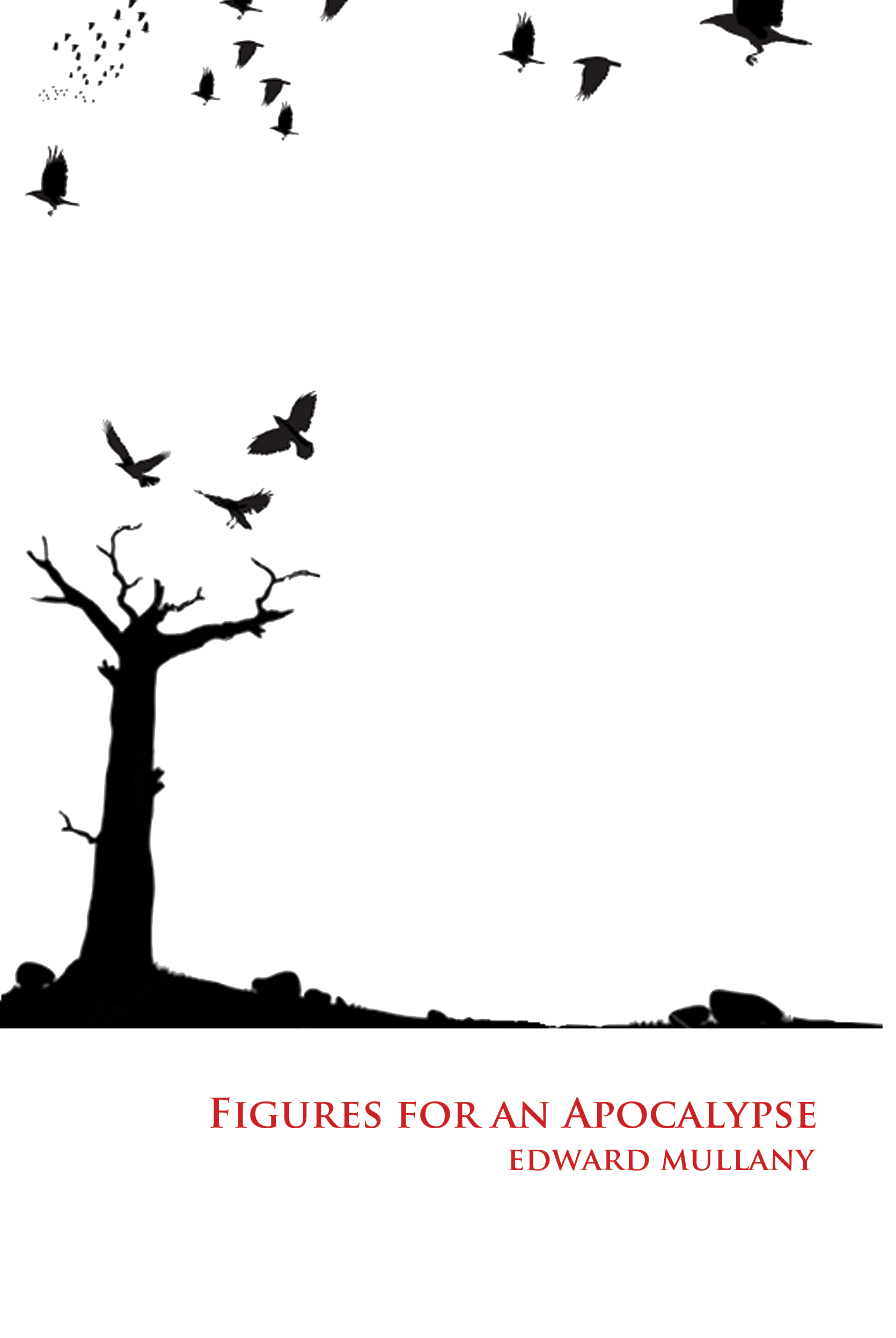
This week Edward Mullany’s second book came out on my own press, Publishing Genius. It’s called Figures for an Apocalypse, and the stories in it (and poems that tell these stories) exist on the perimeter of Cormac McCarthy’s The Road, before and after the inciting incident. Like there’s one called “The Parade of Rabbits” that goes “No one // saw it. /// It happened / after everyone died.” I read Edward’s manuscript for the first time last summer, while I was on an Adirondack camping trip with my family. Lots of kids, so I floated out on a kayak on a still pond. By the time I drifted to shore I’d read it through and thought it was the best possible setting. In the intervening year and a half I’ve read the book in handful of other settings—at my desk, on the john, on the road, in long and short sittings—and every different setting also seemed ideal. Part of the magic of everything Edward does, I think, is how he brings the reader/viewer into his own mindscape. I asked Edward a few questions.
Is there humor in this book?
Yes, though not much. But it’s important that it’s in there. If the book had no humor in it, it would lack resonance because it would indulge in a pessimism that isn’t real. The only place that I can imagine humor being impossible is hell. Like, the actual “eternal fire,” in a religious sense. And I’m not trying to tell a story about hell. What I mean is that the book is trying to tell a story about the human situation as it exists in temporality (as opposed to eternity). And there is always the possibility of humor in this situation – the one that exists in time. In the same way that there is always the possibility of hope. Not hope that we won’t suffer or won’t die, but rather hope that our sufferings and deaths can have meaning. READ MORE >
POEM-A-DAY from THE ACADEMY OF AMERICAN LUNATICS (#9)
BE SKUNK
by Gary J. Shipley
***
You got to be always skunk. There’s fuck all else to say – it’s the only stink there is. How else you gonna save yourself from the weak-assed perfume of just being okay, if you can’t stink it up more than them reekers too afraid to reek of anything?
What genus? Spotted, hog-nosed, hooded, any one’ll do. Just be that cunting skunk!
And if it happens, and it will, that you stink so good and proper people reckon you ambrosial, ask around for someone with a nose for anal air, death-row inmates, ambulance men, porn stars, plastic surgeons, any fuckwit with a voice, and ask them what it is they cannot smell, and the death-row inmate, the ambulance man, the porn star, the plastic surgeon will give it to you straight: “If you’re going to smell you might as well really stink like shit. Or else risk not being smelled at all, so go be skunk, skunk yourself the fuck up! And don’t stress the genus any, spotted, hog-nosed, hooded, malodour is where it’s at and always its own reward.”
***
![]()
 I imagine ol’ raisin-nuts Baudelaire turning slowly yellow, his tits in a sack, his liver like a pockmarked turd, and I long to save him from all kinds of intoxication. I want to preserve him for unborn generations, who will recognise him not by sight but by the cut of his scent, a scent I’m proud to have initiated and prouder still to spread.
I imagine ol’ raisin-nuts Baudelaire turning slowly yellow, his tits in a sack, his liver like a pockmarked turd, and I long to save him from all kinds of intoxication. I want to preserve him for unborn generations, who will recognise him not by sight but by the cut of his scent, a scent I’m proud to have initiated and prouder still to spread.
![]()
note: I’ve started this feature up as a kind of homage and alternative (a companion series, if you will) to the incredible work Alex Dimitrov and the rest of the team at the The Academy of American Poets are doing. I mean it’s astonishing how they are able to get masterpieces of such stature out to the masses on an almost daily basis. But, some poems, though formidable in their own right, aren’t quite right for that pantheon. And, so I’m planning on bridging the gap. A kind of complementary series. Enjoy!
December 17th, 2013 / 11:06 pm
Dress Up with the Contagious Knives
Besides possessing a really pretty first name, Joyelle McSweeney has earned a place as one of the top three poets presently (the other two are Ariana Reines and Chelsey Minnis). Totalitarian, deathy, and melodious, Joyelle has composed a Hunger Games-like novel, an essay about Ronald Regan, and a play, the Contagious Knives, that’s rich in rancor and in rhymes.
The Contagious Knives displays the diction of a nimble rapper and the pitch of an impassioned preacher. As the play’s hero, Louis Braille, tells Bradly Manning, “No indian giving, no taking it back, / except when you take it from me, / Indian, Chinaman, Brad-lee.”
Obviously, Joyelle needs no help decking her characters. Louis’s costume consists of pink panties, a Target t-shirt, a Victorian sailor suit, liquid eyeliner, and more. But what if it was required to dress the Contagious Knives’s characters in designer labels for a French Vogue editorial? What would they wear then? Well, maybe they’d trot out on stage in these things:
Boastful, sassy, and violent, Joyelle’s Louis Braille is a boy for boys to admire. Some of Louis’s first lines are: “I’m a very special cunt. / A very special fucking cunt. That’s what daddy always said / (wink wink).” Not humble about inventing his eponymous language for blind boys and girls, Louis likens himself to napalm and hints at an affiliation with Nazis by repeating “Not see!” four times in a row.
December 12th, 2013 / 1:13 pm
In Conversation: Matthew Revert and Michael J Seidlinger
Matthew Revert: Who friended who? I don’t even know anymore.
Michael J Seidlinger: How the hell did we start talking to each other? At one point we were both strangers, completely invisible to each other. Hmm, I think what happened, on my end, is that I friended you and didn’t reach out and talk for a long time. I tend to do that.

MR: I remember you were posting about your insomnia, and being a fellow insomniac, we discussed it a lot.
MS: This is true. I am a raging insomniac.
MR: And I suggested you listen to earth2 by Earth. And friendship was born.
MS: And from there, it quickly spiraled into design. I think it was being mutually interested in graphic design that forged it.
MR: Design was the key. I’m not even sure if you knew I was a writer at the time.
MS: I actually did. I knew you were a writer. Ironically, I do remember knowing of you as a writer before the design.
MR: Oh? That actually pleases me.
MS: I think it was the book with all the people on the front, the carbon copies. A Million Versions of Right?
MR: Yeah, that was my first book. About to go out of print actually.
MS: Yeah, I bought that and read it and it wasn’t until we started talking about insomnia via comment threads and Facebook chat that I put the pieces together.
MR: Shortly after meeting you, I started investigating CCM and saw that you were a writer and also a designer. That parallel pleased me because I had always been shoved into the writer camp or the designer camp (increasingly the latter).
MS: Since taking over CCM, I’m setting all my books originally published on CCM out of print; ethical issue.
MR: Yeah. That makes sense. I worried about that with my first books for LegumeMan.
MS: Ah, so CCM led the way? It’s interesting to meet people that knew of the press before they knew of me.
MR: Yeah. Pretty sure it did. And I purchased My Pet Serial Killer. And really enjoyed a lot of your CCM design work.
MS: That gets me to thinking…
MR: Yeah?
MS: How we’re both writers and designers. I do believe that you and I were writing the books at the same time, the books that we’re talking about.
MR: As in, when we first met, you were writing Laughter of Strangers and I was writing Basal Ganglia?
MS: I recall writing Laughter of Strangers around the time you were revising and “going under” and really getting into the thick of it with Basal Ganglia. We were already talking, but it wasn’t until that time that we started talking on a daily basis.
MR: Yeah. We were both working on our books. Did we know, at that time, they would both be released by Lazy Fascist in the same batch?
MS: That’s interesting. I don’t think so. I could be wrong but I do recall having many a late night talking craft.
MR: Yeah. We unloaded our various frustrations and triumphs on each other.
MS: Good days and bad: We discussed them all.
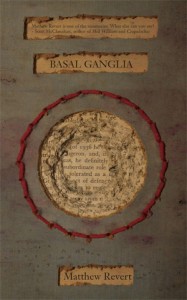
MR: Basal Ganglia was a very difficult book for me to write so there was a lot of ennui. How long did it take you to write Laughter of Strangers? You write much faster than me, I think.
MS: It took me about 3 or 4 weeks.
MR: Hahahaha. Basal took me 18 months and is half the length. You’re a machine.
MS: I think I write fast because I’m afraid of staying with a book for too long. As a result, I become consumed by the project. How many drafts did you have for Basal?
MR: Yeah, and that clearly works for you. I mean the end result says it all. I had upwards of ten false starts. I turn my book into a year-long lifestyle.
MS: So you “live” the novel—that’s awesome. Do you have any specific quotas/rituals?
MR: Getting right down to it, I started writing Basal Ganglia as a response to cognitive therapy I was undergoing. I wanted to understand that experience. That’s how it tends to be for me. I am responding to something that has happened. Something that has led to significant change within me.
MS: From the beginning, the book delved right into the cerebral.
MR: Yeah, I’m in that place. I tend to live the book for long periods. Gradually eking it out.
MS: So you sort of have a period of “making sense of it?”
MR: Yeah. And that period often maintains well into the process, but as a result of that, it only had two drafts. My first draft is very close to the final draft. But Basal Ganglia was a real puzzle to figure out and I wanted to understand as many pieces of that puzzle as possible before I started writing it.
MS: I’m personally interested in the part of the writing process that involves not the initial process, or drafting, but rather how an idea becomes something more organic, something real. It’s interesting to see how you turned the book into a puzzle given how you were looking to make sense of a puzzle. You crafted a puzzle to make sense of a personal puzzle.
MR: It seems to me that so much of the energy in Laughter of Strangers would come from the way you’re able to almost purge the book in a shorter space of time.
MS: I believe I’m beginning to see that, yeah. I have this compulsion to chase after the perceived momentum of a piece. Everything hinges on the first 2 days of writing—that two-day stretch sets the pace. Most of the time, I write approximately 3000-5000 words, have the general structure and feel of the book. I’ll know where it’s going; from there, it begins to consume me. I can’t stop thinking about it. It follows me throughout my days. As a result, I write faster. Maybe it really does show itself in the stuff I write.
MR: Before I started writing Basal Ganglia, I knew I wanted it to be set in the human brain, with the “basal ganglia” of the title becoming the only characters within that brain.
MS: Do you outline, or plan out anything conceptually?
MR: Not on paper, no. I usually start writing a random chapter. I think the first part of Basal I wrote was chapter 7. This sounds kind of wonky, but the only real planning I did outside of my head was to have a print out of the human brain’s anatomy on my writing desk. I circled a part of the brain and said, ‘okay… now write this’.
Screaming Monsters and Sordid Gays: Ian Bogost’s Alien Phenomenology
I was really looking forward to reading Ian Bogost’s philosophy book, Alien Phenomenology, or What It’s Like to Be a Thing. Two girls who I absolutely admire — one who writes criticism about Thoreau, one who writes plays about Louis Braille — placed praise upon the book, and I was prepared to do similarly.
Ian’s book is bound to object-oriented ontology, a philosophy that posits that “nothing has special status, but that everything exists equally — plumbers, cotton, bonobos, DVDs.” For Ian, the world is composed of units, where “something is always something else.” Humans, the stars of so many philosophies, can neither be separated nor elevated above other things because those things are a part of them and they are a part of those things. While Kant (a bland German boy), Heidegger (a curious Nazi boy), and others put people on a peerless pedestal, Ian puts them in messy dot where millions of encounters occur at once. As Ian explains:
On August 10, 1973, at a boathouse in Southwest Houston, the shovel of a police forensics investigator struck the femur of one of the seventeen corpses excavated that week, victims of serial killer Dean Corll.
The boathouse, the shovel, the police boy, the serial killer — each is a unit, and each unit leads to other units. The serial killer boy probably possessed a mommy and daddy, and his mommy and daddy are units who are entwined with more units. Object-oriented ontology suggests the unceasing character of the Nazis, who were invariably inserting themselves into more land, lives, and histories. Units are all over, and, during World War Two, so were the Nazis.
But not all of object-oriented ontology can be compared to screaming monsters who slaughtered six million you-know-whos and five million ummms. Some of Ian’s philosophy aligns with utterly unpleasant people, like Walt Whitman and Allen Ginsberg. Each of these canonized homosexuals has a penchant for lists. Whitman enumerates his electrified body parts while Ginsberg tells of the objects that have transfixed his tushy. For Ian, “Lists remind us that no matter how fluidly a system may operate, its members nevertheless remain utterly isolated, mutual aliens.” Whitman-Ginsberg types show this shared separateness in a most sordid way. Queer theorist Tim Dean details how homosexuals disclose the inevitable objectification of s-e-x. Disputing Andrea Dworkin’s belief that porn “dehumanizes those whom it fetishizes,” Dean says that all s-e-x, not just the porn kind, “fragments and particularizes.” Such fragmentation is disgustingly displayed in the gay community, whose members, according to Dean, BJ boys through holes in the wall, then spit the c-u-m into a container, which is then funneled into other boys’ tushies.
POEM-A-DAY from THE ACADEMY OF AMERICAN LUNATICS (#7)
DOG STORY
by Sam Pink
***
there’s this dog that lives a few blocks away from me. i always see him lying down in a fenced-in patio area out back. one time i saw a guy walking his dog by the fenced-in patio area and the guy stopped and stood there distracted–talking on his cellphone–as his dog pissed on the head of the dog lying down, who didn’t move.
***
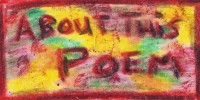
i wrote this poem after rauan asked me if i had any poems. the main inspiration is a dog i saw getting pissed on, and also, rauan asking me for a poem.
![]()
note: I’ve started this feature up as a kind of homage and alternative (a companion series, if you will) to the incredible work Alex Dimitrov and the rest of the team at the The Academy of American Poets are doing. I mean it’s astonishing how they are able to get masterpieces of such stature out to the masses on an almost daily basis. But, some poems, though formidable in their own right, aren’t quite right for that pantheon. And, so I’m planning on bridging the gap. A kind of complementary series. Enjoy!
December 2nd, 2013 / 9:21 pm
……In Tornado Wreckage….. …(by david blumenshine)…
dat disaster. it was this disaster. surreal when it’s you. when it’s not just a news story.
pretty sure that’s actually, well, at least was, my sister’s house. been staying there for a few months bouncing from basement to basement, on the lamb from homelessness on account of my own admittedly poor time management (see: effort towards literary endeavors v gainful employment otherwise). my sister had, well she still does have, a white saturn suv. she was in toluca around 11am cst. my brother in law had some dark green car, with specialty plates and a few notre dame bumper stickers. pretty sure i smoked where the backwall’s framing rests sideways on the ground now. this happened several times each night while staying here, there, because i can’t, couldn’t sleep, trying to pretend READ MORE >
Jeff Bursey interviews Steven Moore. Among other things, it includes a photo of a young Moore playing a sitar.
Also relevant: Jeff’s review of Moore’s recent The Novel: An Alternative History, Vol. II. (I loved Vol. I myself.)
An Interview with Gabriel Blackwell
I interviewed Gabriel Blackwell this weekend. We talked about his new book, The Natural Dissolution of Fleeting-Improvised-Men: The Last Letter of H.P. Lovecraft, which is a strange, scary, and above all absorbing novel about the final days of said author of the weird. We talked about our experiences with Lovecraft and Lovecraft fanfiction, Mexican men’s shelters, why we don’t like House of Leaves, and writing “objectively,” among other things. Please watch and enjoy. Then buy his books.



